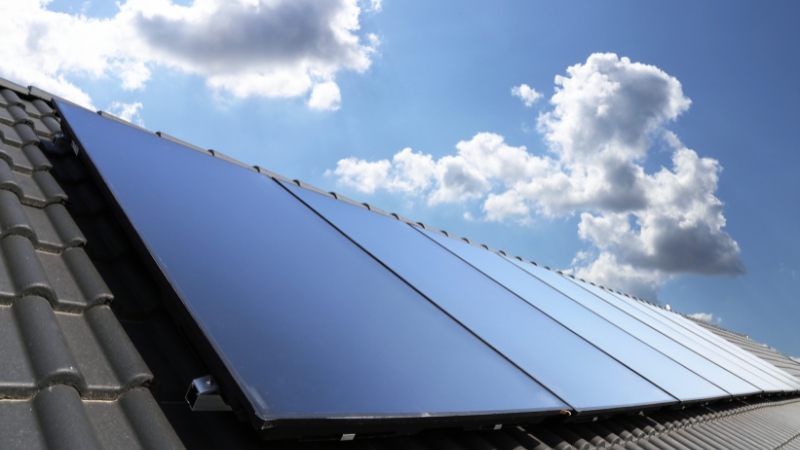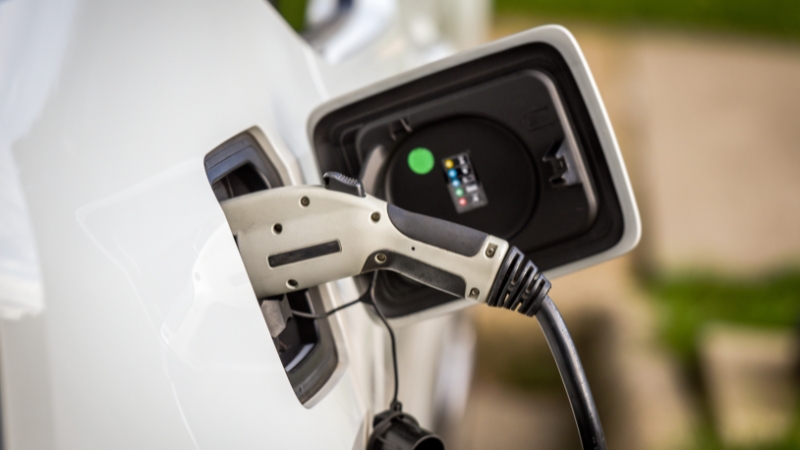Categories
9 Ways to Save Business Energy

Regularly evaluating your business energy consumption is an important step towards reaching the UK target of net-zero emissions by 2050.
While 2050 may sound far off, it’s only achievable if businesses start making changes now, cutting down on energy usage and switching to sustainable energy sources as soon as possible.
But how do you make those changes? At Clifton Business Energy, we’re here to help, with simple but effective tips for your business to become more environmentally responsible while saving money.
9 Ways to Save Business Energy in Brief
- Collect and analyse data
- Switch your energy supplier
- Install smart controls
- Upgrade equipment
- Electrify your fleet
- Stop hassling the AI
- Improve building insulation
- Increase staff awareness
- Just cut back
And number 10…? Work with Clifton Business Energy to develop a comprehensive energy usage plan that will save on costs and meet your environmental targets.

1 - Collect and Analyse Data
The first step to lowering your energy consumption is to know what your energy usage is and monitor your progress. Simply turning off a few extra lights without really seeing what impact it makes is ineffective and will easily lead to slipping back into your old ways. Think of it like a business energy lifestyle change - if you can’t see how much healthier you are becoming, it’s hard to keep motivated.
Businesses with more complex energy needs than a single meter may be able to access an online supplier dashboard, providing detailed information on energy use with data such as time tracking, monthly graphs, and forecasts.
Remember, energy usage isn’t just about the electricity your office is using, you need to consider vehicle fuel, machinery, and other off-site energy consumption.
Use the data you can acquire to measure your progress as well as determine your focus for future savings.

2 - Switch Your Energy Supplier
While changing your energy supplier may not directly alter the amount of energy you are using, switching to the right supplier will bring down your costs and help ensure you’re making less impact on the environment.
Modern forward-thinking suppliers focus on renewable sources of energy, such as solar, wind, and hydroelectric power, using the latest advances and technology to provide a comprehensive service for business customers.
At Clifton Business Energy, we offer smooth energy supplier comparison and switch services, including:
- Online compare and switch - A simple contract comparison tool that saves you money and finds a more suitable sustainable energy partner.
- Effortless bill-upload switch - Our premier service that takes the administrative effort off your shoulders; simply upload your bill and we’ll do the rest.
- Full consultancy - For businesses with complex multi-site needs and larger energy usage, our experts will work hand-in-hand with you to develop and deliver a tailored energy solution that brings down your emissions and makes significant savings to your monthly energy expenditure.
When you switch to a responsible energy supplier, you increase your understanding of your business energy use and reduce your energy bill. Through thorough engagement, consumption will drop, resulting in leaner business energy usage.

3 - Install Smart Controls
We all might like to think that we have the discipline to maintain low-energy proposals, but in reality, managing a business is fast-paced and attention-taking - it’s understandable that sometimes the smaller considerations, such as keeping up with energy saving routines, will slip.
By upgrading your thermostats, light switches, and other building controls to modern smart technologies, you take the responsibility of remembering to minimise usage away from your busy mind and let it run automatically.
Voice control, sensor adjusted temperatures, scheduled settings, and much more will make your business operations work smoothly with optimised energy usage. Some simple routines that can help save significantly over time include:
- Lights that are only on when rooms and zones are in use.
- Schedules and sensors for opening blinds and letting in natural light when it’s there, and augment with electric lighting when not, maintaining an efficient and perfectly lit environment.
- Heating that’s set by zone, with optimised use of energy to maintain temperature without draining resources.
- Air conditioning that’s centrally controlled for the lowest environmental impact.
- Doors that close automatically, helping seal in the right temperature and minimise heat leakage.
- An office that knows to turn itself off once everyone has gone home.
Smart controls are convenient, require only a moderate financial investment, and bring your company’s energy consumption in line with modern standards.

4 - Upgrade Equipment
With a focus on ecologically responsible and energy saving systems, equipment manufacturers work tirelessly to improve the efficiency of their products each year.
Once more, data analysis provides the information needed to make an informed decision. Electrical products will list their usage, so a like-for-like comparison is possible.
It’s also not simply about the equipment you consider every day, such as your office computer, but a whole range of items that form part of your daily business. Consider:
- Lightbulbs - Easily overlooked as ‘equipment’, your lightbulbs nonetheless are a piece of technology you use every day. Modern LED bulbs are significantly more energy efficient than older alternatives. Lightbulbs are everywhere, so think about those in offices, storerooms, factories, kitchens, garages, bathrooms, and more.
- Laptops over desktops - Laptops tend to be far more energy economical that similarly-powered desktop machines. Making the switch over to laptops in your office, especially for administrative staff where cutting-edge power is less needed, can drop your consumption and lower costs.
- Kitchen equipment - Fridges, freezers, microwaves, coffee machines… Often businesses opt for the cheapest piece of kit to put in a shared office kitchen without considering the energy consumption. Upgrading to better, more sustainable options will make a real impact on your business energy usage.
- Heating and air conditioning - It should go without saying that these huge energy hogs need to be maintained and upgrading to avoid wasteful energy use, but it’s easy to overlook them as part of your general equipment list. Make sure you track and measure the energy consumption of these key systems and regularly look at options to see when improvements make sense.
- Maintenance equipment and power tools - If you have a busy workplace where maintenance is done regularly, consider checking the power usage of your primary maintenance equipment. Often there are improvements that can be made here.
- Specialist equipment - Many businesses will have their own dedicated specialist equipment, and often the choices for replacement here are lower. Nonetheless, considering energy use as one of the factors used when purchasing or replacing equipment will help you stay on top of consumption.
See: Our Equipment Finance Service

5 - Electrify Your Fleet
Vehicles are a huge energy consumer. When we think of energy use in business, it’s normal to jump to the equipment and items we use inside a building, but vehicles form a core part of many businesses, and they consume significant levels of energy.
When it comes to looking at ways to reduce your energy consumption, assessing your vehicle usage is a must.
Upgrading your fleet of vehicles is a costly enterprise and should be done with a careful plan and full understanding of the finance options available to you. The vehicle finance team at Clifton Private Finance can help. With specialist expertise in vehicle funding, we can help you develop a plan to move your entire fleet over to electric vehicles as current leasing contracts come to a close.
See: Our commercial vehicle finance service

6 - Stop Hassling the AI
Artificial intelligence (AI) is everywhere and business use is growing each month. The power that the new AI-driven systems give you is astonishing, improving your business efficiency and cutting costs in multiple ways. However, the energy consumption that AI uses is somewhat astronomical.
Take ChatGPT, one of the more common AI Large Language Models. A single question to ChatGPT uses as much energy as six minutes of light from a modern LED bulb. That means ten questions burns a similar amount of electricity as leaving a light on for an hour. One half an hour chat to your AI companion with polite pleases and thank-yous is like boiling a kettle, or driving an electric vehicle 200 metres.

7 - Improve Building Insulation
Leaky buildings are prime candidates for energy wastage. When your insulation is poor, the energy costs can rocket as you find yourself heating (or cooling) the outside world rather than just your workplace.
Insulation and building leaks can happen in different areas in your building. Consider:
- Poor roof insulation - Hot air rises. When it’s not trapped through roof insulation, your heating bill escalates.
- Gaps in windows and doors - Seals are extremely important to prevent the warm air escaping.
- External walls - Walls that are very cold to the touch are typically draining your energy.
- Single-glazed windows - Old buildings without double (or triple) glazing will leak heat through the window panes.
- Large open ceiling spaces - While not technically an insulation problem, rooms with large spaces above head height will require significantly more energy to maintain a uniform temperature.
Working with a specialist insulation contractor to lower your building’s U-value will significantly improve your energy usage, lowering bills and helping meet those essential regulations.

8 - Increase Staff Awareness
One of the biggest problems with maintaining energy efficiency measures is that you need to get everyone on board. Training sessions and improved team member awareness is essential if the changes you implement are going to last.
Developing standard operating procedures (SOPs) that clearly define your energy-saving methods is a clear and effective way of ensuring business-wide compliance. Bring your staff together and make reducing your business energy consumption a company-wide initiative.

9 - Just Cut Back…
Perhaps the most obvious way to reduce energy usage in your business is to cut back. With your monitoring programme and analysis of the data, you will soon see that the biggest wastage will come because energy use is simply overlooked. If something isn’t noticed, it’s easy to forget that it has an impact.
Think before you flick on a light, cut back on having screens showing things no one is watching, stop leaving the doors and windows open when it’s not needed, turn the heating down a little, boil the kettle a little less, and don’t drive to the shop when it’s within walking distance. Ultimately, energy use is a habit; small steps in breaking bad habits make a huge difference.
Reducing Your Energy Consumption with Clifton Business Energy
At Clifton Business Energy, we are dedicated to supporting our customers with cost-effective, sustainable energy solutions.
Working with partners in energy supply, as well as with relationships across the business finance sector, we evaluate businesses holistically, developing a strategy for energy consumption that maximises efficiency and minimises cost.
Use our comparison and switching tool today to make the first move towards a new ultra-sustainable future, or contact us to speak to an advisor for a tailored plan that optimises your business. Together, we’ll make net-zero a reality.












